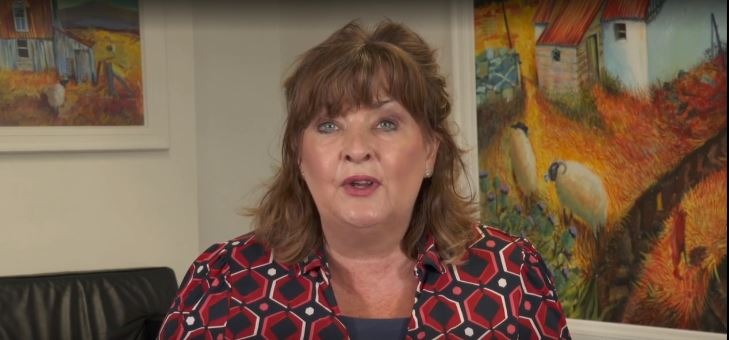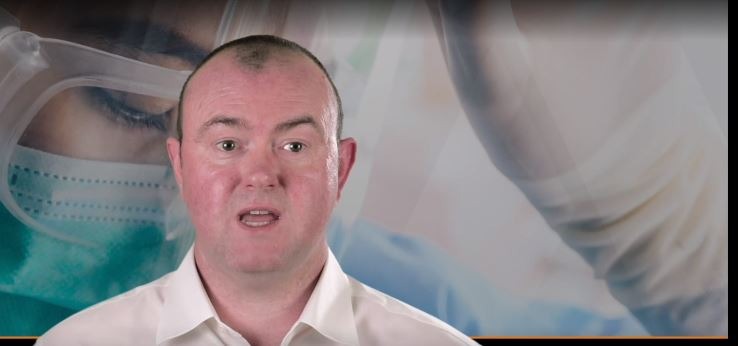In response to the COVID-19 pandemic, P4H Scotland moved online this year, with event organisers, BiP Solutions, delivering a highly successful event on 14 September 2020.
The main feature of the day was the Keynote Arena, held in the virtual auditorium, where delegates had the chance to hear from ten speakers, including two Ministers from the Scottish Government and representatives from leading suppliers to the NHS in Scotland.
Inevitably, the COVID-19 pandemic and its effects on the health service in Scotland played a major part in the presentations. Cabinet Secretary for Economy, Fair Work and Culture, Fiona Hyslop, thanked not only the frontline workers but also suppliers, warehouse staff, drivers, logisticians and office staff, describing them as “the backbone supporting our frontline staff”, while Gordon Beattie, Director of National Procurement at NHS National Services Scotland (NHS NSS), stressed that “caring about tomorrow drives what we do today.”

The central theme of Ms Hyslop’s address was the role of procurement in delivering economic and social benefits for Scotland and its communities. She spoke of the need to
“work together to develop a well-being economy, one characterised by well-being, inclusion, sustainability and resilience.”
Ms Hyslop stressed the importance of tackling inequality as we as a society endeavour to restart the economy following the impact of COVID-19. She indicated that public sector procurement has a role to play in this, pointing to the £2.5 billion spent on health procurement each year in Scotland and urging buyers to consider how their contract decisions can support jobs throughout Scotland, remembering that
“it is vital that suppliers of all sizes have the opportunity to be involved in public procurement.”
Ms Hyslop set out four strategic outcomes that buyers should embed in their procurement, which harness the power of collaboration to give real social value: a procurement should be good for businesses and employees, good for society, good for places, and open. She urged buyers and suppliers to use P4H Scotland to
“collaborate and share ideas on how to create a procurement community responsive to the needs of customers within the health service and those we care for.”
Later in the session, some of Ms Hyslop’s themes were further developed by her colleague Ivan McKee, Minister for Trade, Industry and Innovation in the Scottish Government. He spoke about the Scottish Government’s Programme for Government, which he said was
“focused on protecting Scotland and renewing Scotland…a national mission to create new jobs, good jobs, green jobs”
As part of this, Mr McKee talked about the Scottish health and industry partnership, which will rapidly coordinate work that can benefit both Scotland’s economy and its health and well-being priorities. This partnership will accelerate innovation in Scotland to solve societal issues, creating jobs and opportunities. It will also maximise regional, academic and industrial innovation to support delivery of the Scottish Government’s remobilised recover and redesign framework for the NHS and social care and support the economic recovery.
Mr McKee also reflected on the Scottish response to COVID-19, saying that
“new supply chains have been created and innovative partnerships have been created across the public and private sectors”
Moving forward, he identified the need to roll out supply chain development programmes to build resilience in the supply chain and to identify where – within the rules that govern it – procurement can support Scottish business to deliver those indigenous supply chains that can support the Scottish economy and build jobs for the future.
The role of procurement in supporting some of the most vulnerable in society was highlighted by Alistair Kerr, Director and Chair of BASE, the British Association for Supported Employment, which provides job opportunities for the disabled and severely disadvantaged, a group who have struggled more than most during the COVID-1 crisis. NHS Scotland Strategic Procurement engages with supported businesses to help them understand and navigate public procurement. Its uniforms contract includes a mandatory supported business subcontract, while a furniture framework includes a specific lot for supported businesses, increasing visibility of their work with health buyers.

Gordon Beattie spoke about the power of procurement to deliver the best outcomes for patients, and emphasised that resilience is at the heart of NHS NSS’ activities as it responds to COVID-19 and prepares for the end of the Brexit transition period on 31 December.
The theme of building supply chain resilience was at the heart of the presentation by David Leven, Head of High Value Manufacturing at Scottish Enterprise. Mr Leven spoke about COVID and the supply chain, concluding that “COVID is an inspiration for wider change in the NHS supply chain”. He told the story of the position NHS procurement in Scotland was in at the start of lockdown, needing to quadruple ICU capacity urgently while facing a critical shortage of PPE, and the transformation achieved by collaborative working with a range of suppliers, some of whom had not previously supplied NHS Scotland. The result: long-term supply chain resilience for most PPE and the creation of more than 350 jobs.
Mr Leven cited the example of Alpha Solway, a PPE company, which, with support from NHS Scotland and Scottish Enterprise, moved production back to SW Scotland at the start of lockdown and subsequently won a £53 million contract, enabling the creation of a total of 250 jobs. Alpha Solway’s story was told in more detail in a presentation by CEO Steven Binnie.
Mr Leven highlighted three key lessons from the COVID crisis. First, the need for a new approach to NHS spending decisions with a far greater emphasis on resilience, together with a redefinition of value for money to include the social and environmental value of procurement decisions, bearing in mind the transformational effect of NHS procurement decisions on communities. Second, that new manufacturing supply chains can be created very quickly if need be. Third, that a much more collaborative approach between buyers and suppliers is very valuable. Perhaps, he said, the COVID crisis could be an inspiration for wider change in the NHS supply chain.

Paul Hornby, Head of Strategic Sourcing and Commercial at NHS National Services Scotland was another who emphasised the importance of “the supply chain and supply chain resilience in future procurement decisions.”
Mr Hornby also addressed the difficulties new suppliers face in bringing innovative ideas in front of the NHS in Scotland, since it is a complex organisation. He highlighted the National Innovation Portal, where suppliers can register their ideas and get quick feedback, such as information about which area of the NHS organisation the supplier should contact to take their proposals further.
P4H Scotland’s headline platinum sponsor was GHX. James Minards, Country Sales UK and Ireland at GHX, spoke in the Keynote Arena about best practice inventory management and the benefits it could bring to NHS organisations in terms of both efficiency savings and patient safety. He stressed the need for organisations to reflect on what they really want and who needs to be involved to make such a project work, remarking that most successful projects are those that are led by clinical teams alongside procurement personnel.
The busy day at P4H Scotland also included a range of training sessions delivered by Eddie Regan, Principal Procurement Consultant at PASS. The 825 delegates – up by 100 on 2019 – enjoyed extensive networking opportunities, with facilities to chat, to email or to set up virtual 1-2-1 or group meetings with other delegates or representatives from exhibitors.
For more information on our events, visit our BiP Events Diary.



